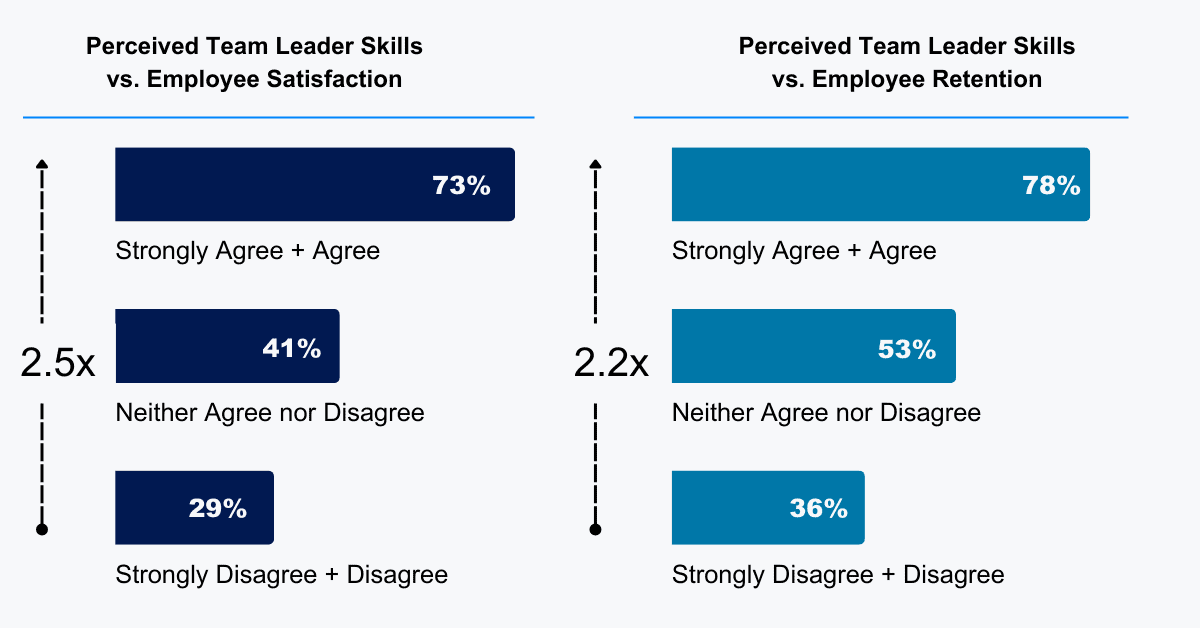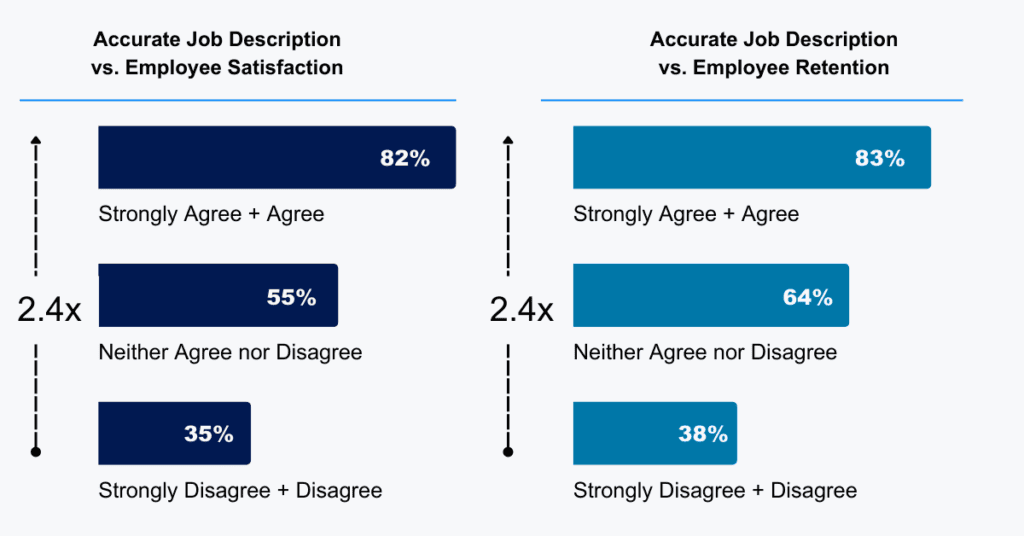
April 4, 2024
Most contact centers recognize the importance of team leaders. However, the team leader role is also one of the most overlooked from a skills development perspective. This article uses insights from the COPC Inc. Global Employee Engagement Research Report to reveal the quantifiable impact of contact center team leaders on employee satisfaction, retention and performance.
Enabling Team Leader Success
COPC Inc.’s Employee Engagement Research uncovered a crucial takeaway for effective team leadership in the contact center industry: the power of education and skill building. Team leaders with the proper knowledge and abilities can better guide and support their agents resulting in more satisfied and committed employees.
The data below shows that when agents feel that their team leader has the appropriate skills and knowledge, their job satisfaction increases nearly three times, with 78% intending to remain with that company for at least another year.
However, when the agents disagreed that their team leaders had the right skills and knowledge to be effective in their roles, job satisfaction dropped to 29%, and only 36% intended to stay with the organization. Investing in team leaders’ education and leadership competencies can boost employee engagement, retention and satisfaction.
The ideal training program prioritizes essential leadership qualities like identifying, managing and leading a high-performing team. Empowering team leaders with effective communication and active listening techniques is crucial to steering their teams toward success. Managers who model these skills equip their leaders with the tools they need to motivate and guide their teams with confidence.
Contact Center Recruitment Quality
Recruitment is critical to any organization and can significantly impact employee satisfaction and retention. Our research found that accurately depicting the agent’s role during the recruitment process can dramatically influence how agents feel about their role when they start working.
The study revealed a strong correlation between job satisfaction and accurate job depiction: more than 80% of agents who were content with their work and planned to stay with their company agreed that their role was represented accurately during recruitment. On the other hand, among agents who found the job portrayal to be inaccurate, less than half felt job satisfaction or intended to remain with the organization.
Contact Center Manager-to-Staff Ratio
Finding the proper manager-to-staff ratio in contact centers ensures frontline leaders can effectively support their agents. COPC Inc.’s Global Benchmarking Series research found that the typical ratio is one team manager to 16 agents, but may vary for some organizations.
Instead, several factors should be considered to determine the correct ratio, such as the complexity of inquiries and the risk level. If agents are not fully prepared for their role and lack access to practical knowledge management resources, the ratio must be reduced to provide more support to the agents.
Because team leaders are closer to the frontline staff, they play a critical role in partnering with supervisors and helping them become more effective. Taking on a team leader role also helps prepare the team leader for future promotions. The team leader learns how to supervise and assist agents in performing at a high level.
Some organizations differentiate the team leader and supervisor roles so that the coaching relationship in the team leader role goes both ways. Supervisors support team leaders while team leaders provide frequent performance management and mandatory weekly touch bases with each agent. These meetings help to ensure quality conversations and the rapid rollout of any necessary changes.
COPC® High-Performance Management Techniques Training
Supercharge your frontline management
with powerful knowledge and skills!

The Value of Structured Reviews
Organizations can ensure agents feel valued through frequent structured reviews between frontline leaders and their agents. These conversations allow leaders to evaluate an agent’s performance and enable agents to voice their concerns. Structured reviews provide an opportunity to discuss agent development goals and receive feedback and coaching from their managers.
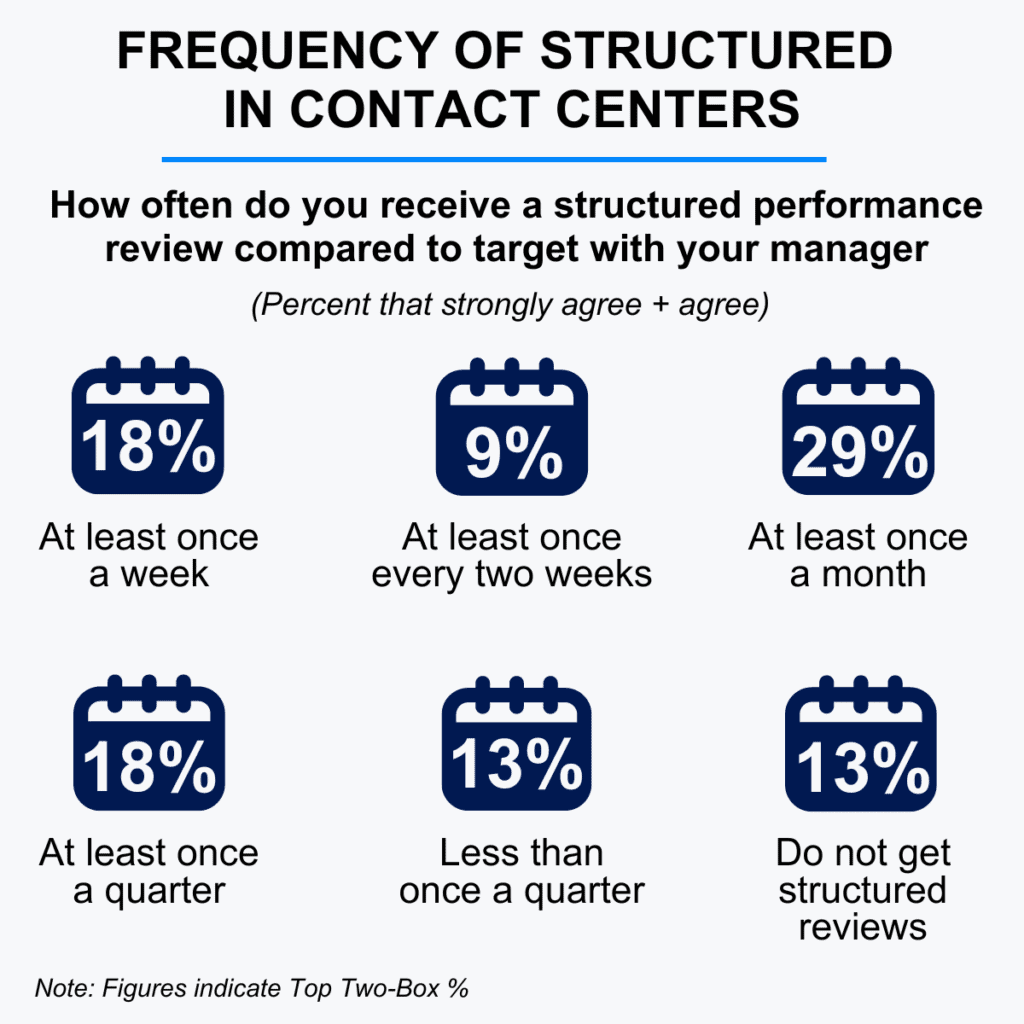
Despite the apparent benefits of these meetings, many contact centers need to hold them with sufficient frequency. In fact, according to COPC Inc. US Employee Engagement Research Report, only 18% of centers have weekly discussions with their agents. Furthermore, less than 50% hold monthly talks.
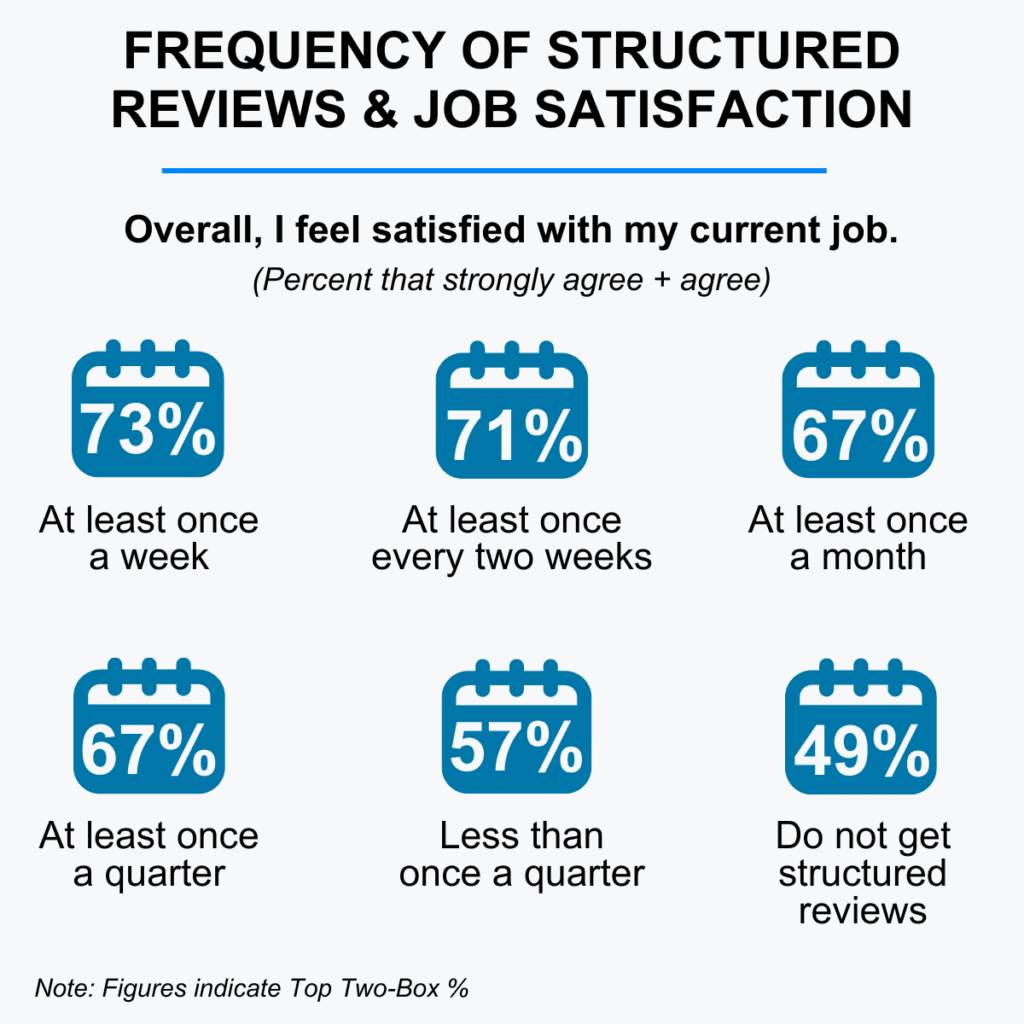
However, the impact of these conversations on agent satisfaction and commitment to the job cannot be understated. According to the same study, 73% of agents with weekly structured reviews are satisfied with their job. Satisfaction drops rapidly as the frequency of meetings decreases.
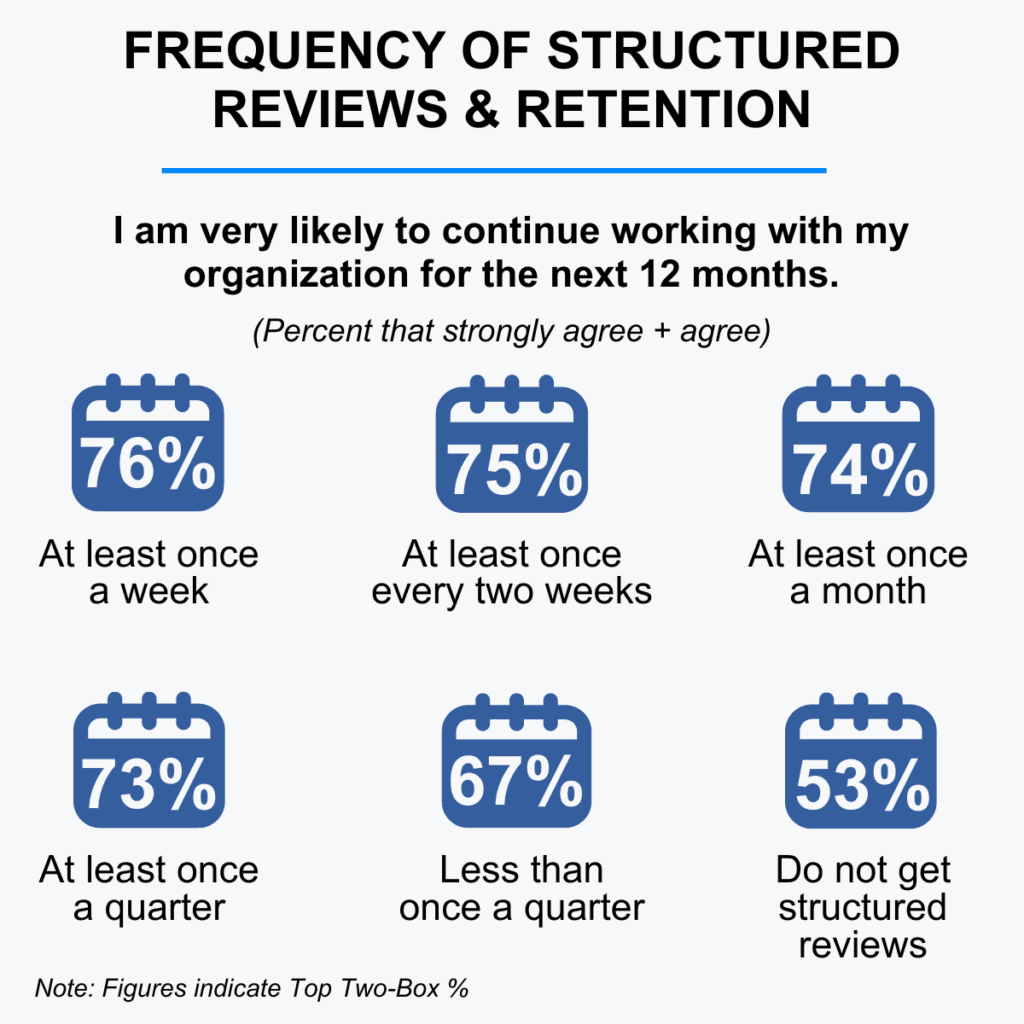
Moreover, the frequency of structured reviews also significantly impacts agents’ intention to stay with the organization. Seventy-six percent of agents who have weekly meetings with their leaders want to continue with their organization. Those who have meetings less than once a month show less job commitment.
The benefits of these conversations extend beyond boosting agent satisfaction and commitment. Regular one-on-one meetings allow managers to root out and address issues before they become significant problems.
For example, if a sudden influx of customer complaints is causing stress and dissatisfaction, managers can address the issue with targeted interventional training. Additionally, frequent one-on-one meetings enable managers to identify high-performing agents who may be ready for promotion or leadership roles.
Summary
COPC research demonstrates the importance of having a solid team leader program. Developing effective team leaders requires a combination of well-crafted training programs and ongoing coaching from direct managers. With careful planning and execution, these tactics pave the way for strong leadership within your organization.
Involving team leaders in recruitment to give candidates a clear understanding of the agent role boosts job satisfaction and commitment. Additionally, weekly, substantive discussions between team leaders and agents helps drive an engaged contact center team.

